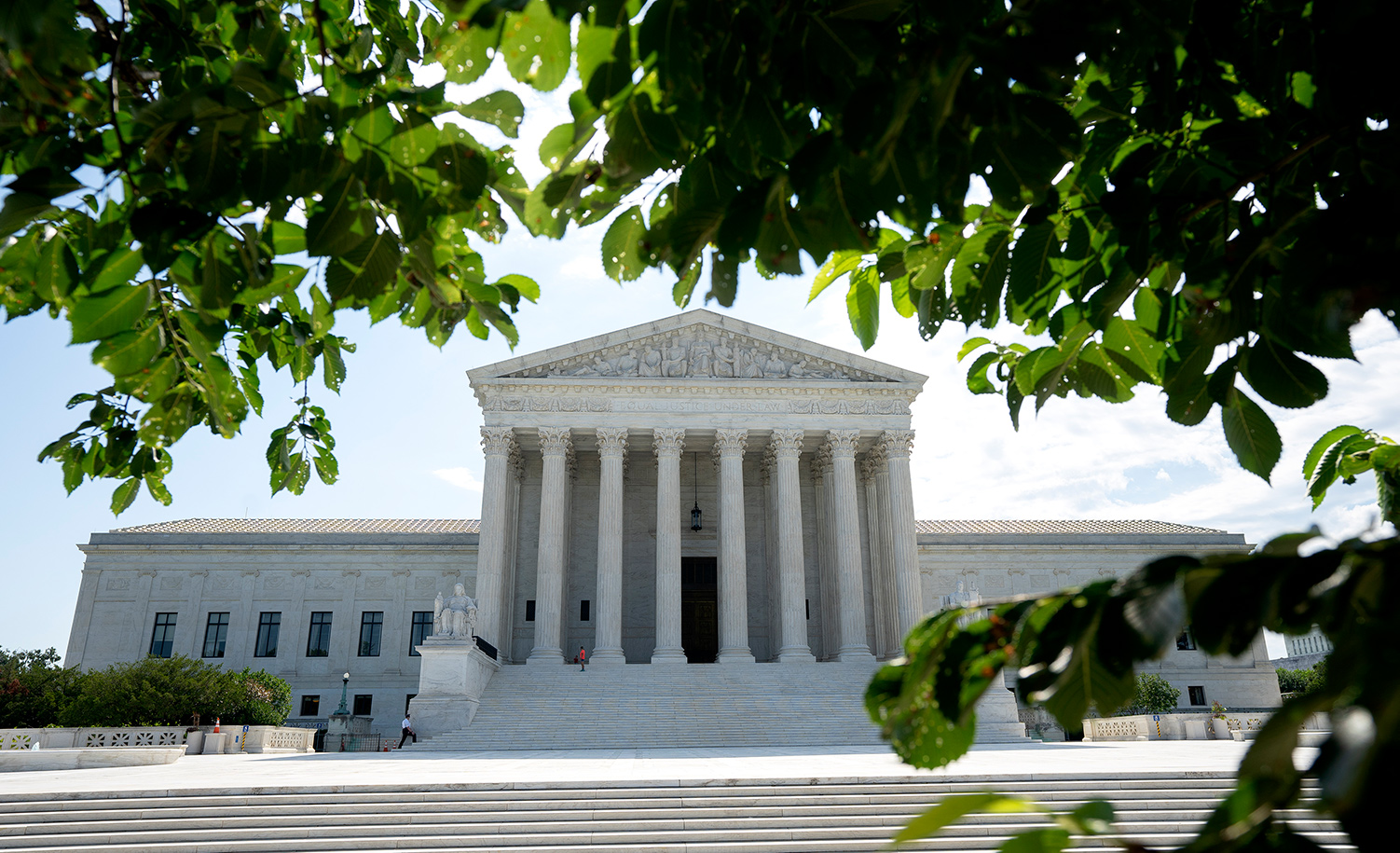
A general view of the U.S. Supreme Court on June 30, 2020 in Washington, DC. Stefani Reynolds/Getty Images.
This Week’s Guest: Jason Bedrick
This week, as the Supreme Court closed out its 2019-2020 term, it handed down its decision in Espinoza v. Montana Department of Revenue. With a 5-4 majority, the Court ruled that states could not use their so-called “Blaine Amendments” in order to deny religious schools funding generally available to other private schools. It was a momentous decision, with implications for school-choice programs and religious liberty across the nation.
Earlier this year, soon after the Supreme Court heard oral arguments in the case, we had a discussion with legal professor Michael Avi Helfand about the legal ins and outs of Espinoza. Now, in this follow-up podcast, Jonathan Silver sits down with EdChoice Director of Policy Jason Bedrick to discuss the Court’s ultimate decision, what it means for school choice and religious pluralism, and what it means for the Jewish community specifically. Bedrick and Silver also talk about school choice programs in general, the ongoing debate about government oversight of ultra-Orthodox educational institutions in the U.S., and the recent expansion of educational choice in Florida.
Musical selections in this podcast are drawn from the Quintet for Clarinet and Strings, op. 31a, composed by Paul Ben-Haim and performed by the ARC Ensemble.
Excerpt (11:20-13:06)
School choice has been an area where there’s been an unfortunate disconnect between the Orthodox and the non-Orthodox. For Orthodox Jews, Jewish education is absolutely paramount, and so there has been a lot of institutional support for those schools and advocating on behalf of those schools. Unfortunately for the non-Orthodox—though there are a lot of great non-Orthodox schools—the vast majority of the non-Orthodox don’t send their children to Jewish schools. They did buy into this idea in the early 19th century that public schools were the avenue for assimilation and success, and they abandoned having Jewish schools. They even worked—in some cases quite nobly—to make sure that the public schools were secularized and open to all, and not teaching children one particular religious view, but at the expense of the particular education of their own children in Jewish values.
And so you see among the non-Orthodox Jewish establishment at the very least indifference, and often a great deal of hostility, to school choice and to the idea that the dollars should follow the child to the school that the parents choose. Even in the Espinoza decision, you had a number of non-Orthodox Jewish groups that were filing amicus briefs against Espinoza, whereas the Orthodox Jewish groups were filing amicus briefs in favor of Espinoza. But as religious minorities in this country, all Jews of all stripes should appreciate the importance of religious liberty, whether you choose to exercise that in the form of sending your children to a religious school or not.
Background
For more on the Tikvah Podcast at Mosaic, which appears roughly every Thursday, check out its inaugural post here.
If you have thoughts about the podcast that you’d like to share, ideas for future guests and topics, or any other form of feedback, just send an email to [email protected].
